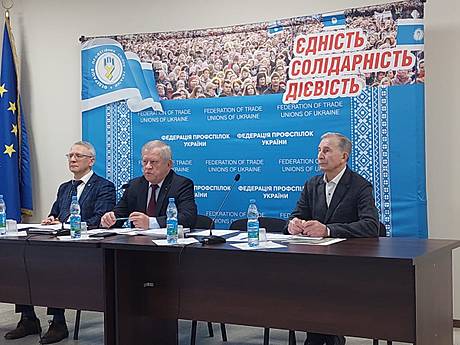
Despite the full-scale war, Ukraine’s mineral resource sector remains critically important and holds significant development potential. This, in turn, could contribute to budget revenues, strengthen national defense, and enhance citizens' purchasing power.
In 2024, the industry saw substantial growth—38.7%—primarily due to the operation of the “marine corridor.” However, revenue from mineral exports in 2024 amounted to only 39.8% of 2021 levels.
To significantly improve the situation, urgent measures are needed to modernize the resource accounting and management system, ensure transparency in geological data, attract private investment, and stimulate infrastructure development.
These issues were discussed at a meeting of the Economic Resilience Crisis Task Force amid martial law. The meeting gathered representatives from central and local executive authorities, the National Academy of Sciences of Ukraine, industry associations, business groups, and trade unions.

Experts emphasized the need for government and parliamentary coordination, a stable regulatory framework, investment attraction, as well as transparent taxation, licensing, publicly accessible high-quality geological data, and streamlined administrative procedures.
Currently, information on the reserves and resources of many valuable minerals in Ukraine is restricted under “classified” or “for official use only” designations. This applies particularly to data on diamond, gold, lithium, titanium, platinum, and other strategic materials.
Experts argue that this secrecy hinders international agreements in the mineral resources sector and complicates cooperation with strategic partners—an especially critical issue given Ukraine’s shortage of capital and modern technologies.
"We need advanced geological exploration, alignment of all procedures with EU standards—including reporting—development of infrastructure and vocational education, and localization of raw material processing in Ukraine," stated Anatoliy Kinakh, President of the Ukrainian League of Industrialists and Entrepreneurs and head of the Crisis Task Force.
According to him, international agreements on Ukraine’s extractive sector—whether with the U.S. or the EU—should include clear provisions on creating added value within Ukraine, establishing production facilities and technological clusters, and manufacturing end products domestically.
Volodymyr Ustymenko, Director of the V.K. Mamutov Institute of Economic and Legal Research at the National Academy of Sciences of Ukraine, stressed that agreements with Western partners should not grant preferential treatment to a single country.

A more detailed analysis of the sector’s current state and challenges was provided by Kseniia Orynchak, Executive Director of the National Association of Extractive Industries of Ukraine.
Currently, the mining industry contributes UAH 295-300 million annually to the state budget. However, besides war-related risks, tariff policies pose a major barrier to attracting large investors. The costs of special permits and extraction royalties have increased, making the sector less appealing.
"We need to lift the secrecy status on data about the quantity and quality of natural resources. If we want to attract investors, they need access to this information to make informed investment decisions," Orynchak emphasized.
The lack of sufficient exploration of mineral deposits is not only the primary obstacle to expanding Ukraine’s resource base but also the key reason for foreign investors' lack of interest in existing deposits.
She also highlighted that Ukraine has yet to define which minerals are considered strategically or critically important at the national level. This lack of clarity hampers sector development.
Meeting participants agreed that the state must take a much more proactive role in engaging private companies in geological exploration. Current legislation does not provide for special permits solely for geological studies, nor does it offer incentives for businesses to take the financial risks of investing in unexplored sites. Another major deterrent for investors is the threat of losing permits that were legally obtained under previously valid laws.

Nevertheless, some steps have been taken to streamline the sector’s operations. At the end of last year, a state program for developing the mineral resource base was introduced.
Following the meeting, relevant recommendations and decisions will be drafted and submitted to the Government, Parliament, and the National Security and Defense Council of Ukraine.